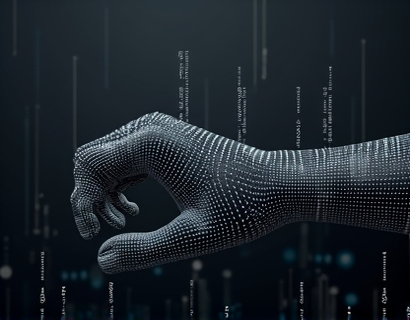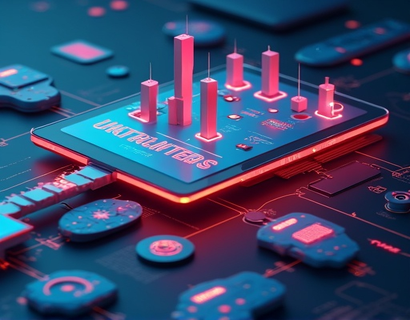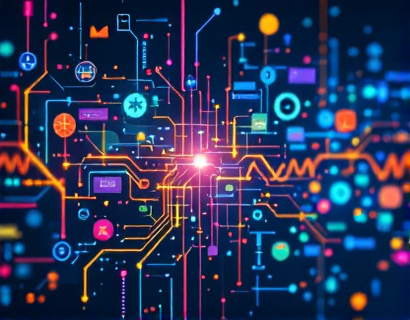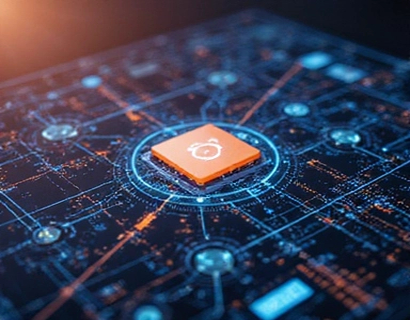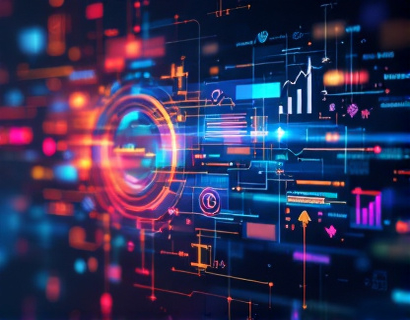Revolutionizing User Experiences: The Synergy of Crypto and AI in App Ecosystems
The integration of cryptocurrency and artificial intelligence (AI) is ushering in a new era of digital innovation, fundamentally transforming the way users interact with applications across various ecosystems. This synergy is not just a technological advancement but a paradigm shift that promises to enhance user experiences, drive security, and foster new business models. As tech-savvy innovators and early adopters, understanding the intersection of these two fields is crucial for staying ahead in the rapidly evolving digital landscape.
The Convergence of Cryptocurrency and AI
The convergence of cryptocurrency and AI is rooted in the unique properties of blockchain technology, which underpins cryptocurrencies. Blockchain's decentralized, transparent, and secure nature provides an ideal foundation for AI applications that require trust, integrity, and robust data management. AI, with its ability to analyze vast amounts of data, learn from patterns, and make predictions, complements blockchain's capabilities by enhancing the efficiency, personalization, and security of digital services.
One of the primary ways AI is leveraging cryptocurrency is through decentralized finance (DeFi) platforms. These platforms use smart contracts, self-executing contracts with the terms directly written into code, to facilitate financial transactions without intermediaries. AI algorithms can optimize these transactions, predict market trends, and manage risks, creating a more efficient and accessible financial ecosystem.
Enhancing Security Through AI and Crypto
Security is a paramount concern in the digital world, and the combination of AI and cryptocurrency offers robust solutions. AI can detect and mitigate cyber threats in real-time by analyzing patterns and anomalies in data. When integrated with blockchain, AI can enhance the security of transactions and data storage. For instance, AI-driven security protocols can identify potential vulnerabilities in smart contracts and suggest improvements, reducing the risk of exploits.
Cryptocurrencies themselves serve as a secure medium of exchange, resistant to fraud and tampering. The use of private keys and public addresses ensures that transactions are secure and traceable only to the extent of the blockchain's transparency. AI can further bolster this security by implementing advanced encryption methods and biometric authentication, making it even harder for malicious actors to breach systems.
Personalized User Experiences
AI's strength lies in its ability to personalize user experiences based on individual preferences and behaviors. In the context of cryptocurrency and app ecosystems, AI can analyze user data to provide tailored recommendations, enhance user interfaces, and optimize content delivery. For example, a crypto trading app can use AI to analyze a user's trading history and market trends to suggest optimal trading strategies and asset allocations.
Moreover, AI-powered chatbots and virtual assistants can offer 24/7 customer support, answering queries and guiding users through complex processes. These AI-driven tools can understand natural language, providing a seamless and intuitive user experience. In the realm of DeFi, AI can help users navigate complex financial instruments and automate investment decisions, making decentralized finance more accessible to a broader audience.
Fraud Detection and Prevention
Fraud remains a significant challenge in digital transactions, and the integration of AI and cryptocurrency offers powerful tools for detection and prevention. AI algorithms can process vast amounts of transaction data to identify suspicious patterns and anomalies that may indicate fraudulent activity. By continuously learning from new data, these algorithms become more accurate over time, reducing false positives and improving overall security.
In the context of cryptocurrency, AI can monitor blockchain transactions in real-time, flagging potential scams or money laundering activities. This proactive approach not only protects users but also enhances the reputation and trustworthiness of crypto platforms. AI-driven fraud detection systems can work in tandem with blockchain's immutable ledger to ensure that once a transaction is recorded, it cannot be altered or deleted, providing an additional layer of security.
Tokenization and AI-Driven Asset Management
Tokenization, the process of converting assets into digital tokens on a blockchain, is another area where AI and cryptocurrency intersect. AI can optimize tokenization by analyzing market conditions, asset performance, and investor behavior to determine the most effective token issuance strategies. This data-driven approach can maximize the value of tokens and attract more investors.
AI-driven asset management platforms can also leverage tokenization to offer fractional ownership of assets, making high-value investments accessible to a wider audience. For instance, a real estate investment fund can issue tokens representing fractions of properties, allowing investors to buy, sell, and trade these tokens on a blockchain. AI can manage these tokens, monitor performance, and provide insights to investors, streamlining the investment process.
Decentralized Applications (DApps) and AI
Decentralized applications (DApps) are a cornerstone of the crypto ecosystem, offering decentralized alternatives to traditional web applications. AI enhances DApps by providing intelligent functionalities that traditional apps cannot match. For example, AI can power predictive analytics, natural language processing, and computer vision within DApps, enabling features like automated market analysis, chatbot interactions, and image recognition.
One notable application is in the gaming industry, where DApps can use AI to create more immersive and dynamic gaming experiences. AI can generate procedural content, adapt game difficulty based on player skill, and even create AI-driven non-playable characters (NPCs) that behave realistically. This synergy not only enhances user engagement but also opens new revenue streams through in-game token economies.
Challenges and Considerations
While the integration of AI and cryptocurrency offers numerous benefits, it also presents challenges that must be addressed. One of the primary concerns is regulatory compliance. The crypto space is still largely unregulated, and the use of AI adds another layer of complexity. Developers and platforms must navigate varying legal frameworks to ensure compliance and avoid legal repercussions.
Another challenge is the technical complexity involved in integrating AI with blockchain technology. Developing robust, scalable, and secure systems requires expertise in both domains. Additionally, the computational resources required for AI algorithms can be substantial, potentially leading to higher transaction fees and slower processing times on the blockchain.
Privacy is also a critical issue. While blockchain's transparency is a strength, it can also expose sensitive user data. AI can help mitigate this by implementing advanced privacy-preserving techniques such as zero-knowledge proofs and homomorphic encryption, allowing data to be processed without revealing its contents.
Future Prospects
The future of AI and cryptocurrency integration holds immense potential. As technology advances, we can expect more sophisticated AI algorithms that can operate more efficiently on blockchain networks. The development of layer 2 solutions and cross-chain interoperability will further enhance the scalability and performance of AI-driven crypto applications.
Moreover, the rise of central bank digital currencies (CBDCs) and the increasing adoption of blockchain in various industries will create new opportunities for AI to enhance financial systems and digital services. The convergence of these technologies will likely lead to more innovative and user-centric applications, solidifying their role in the digital transformation of society.
For tech professionals and early adopters, staying informed about the latest developments in AI and cryptocurrency is essential. By understanding the synergies and challenges, they can leverage these technologies to create groundbreaking solutions that redefine user experiences in app ecosystems.




